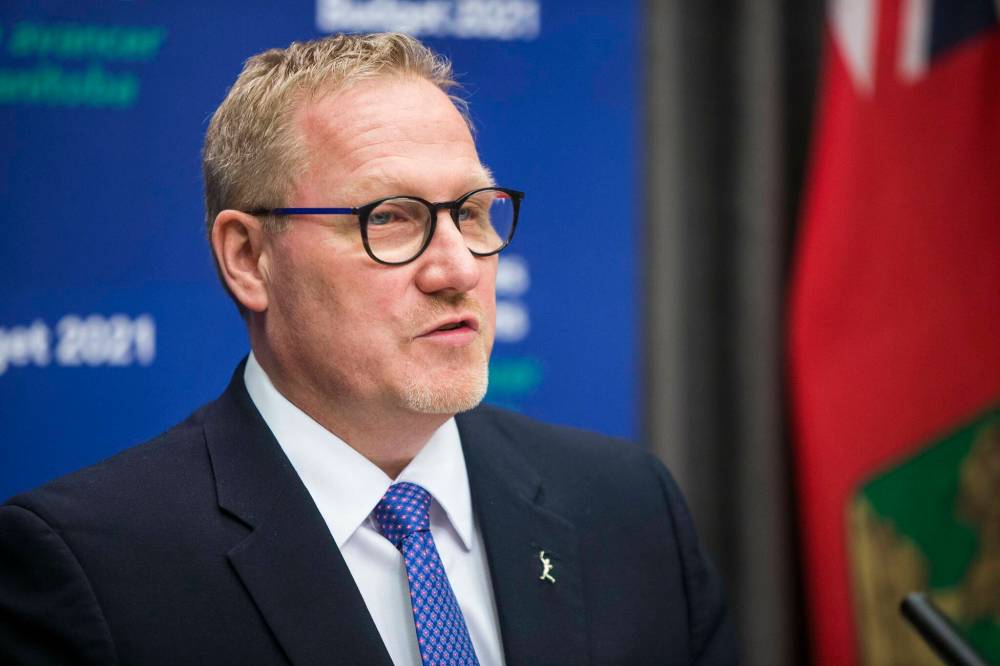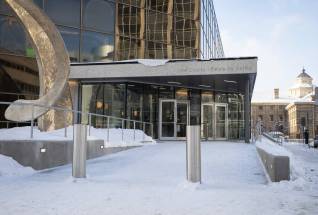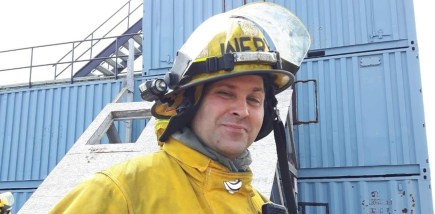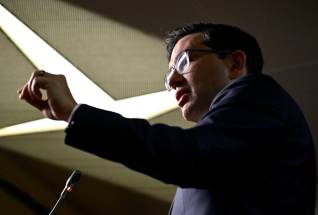Exodus of Tory MLAs signals more than ‘rejuvenation’
Read this article for free:
or
Already have an account? Log in here »
To continue reading, please subscribe:
Monthly Digital Subscription
$0 for the first 4 weeks*
- Enjoy unlimited reading on winnipegfreepress.com
- Read the E-Edition, our digital replica newspaper
- Access News Break, our award-winning app
- Play interactive puzzles
*No charge for 4 weeks then price increases to the regular rate of $19.00 plus GST every four weeks. Offer available to new and qualified returning subscribers only. Cancel any time.
Monthly Digital Subscription
$4.75/week*
- Enjoy unlimited reading on winnipegfreepress.com
- Read the E-Edition, our digital replica newspaper
- Access News Break, our award-winning app
- Play interactive puzzles
*Billed as $19 plus GST every four weeks. Cancel any time.
To continue reading, please subscribe:
Add Free Press access to your Brandon Sun subscription for only an additional
$1 for the first 4 weeks*
*Your next subscription payment will increase by $1.00 and you will be charged $16.99 plus GST for four weeks. After four weeks, your payment will increase to $23.99 plus GST every four weeks.
Read unlimited articles for free today:
or
Already have an account? Log in here »
Hey there, time traveller!
This article was published 10/01/2023 (1063 days ago), so information in it may no longer be current.
It was not unexpected that some portion of Manitoba’s Progressive Conservative caucus would announce their departure from politics prior to the next provincial election, scheduled for Oct. 3.
Political parties typically undergo some level of renewal prior to elections. For many politicians, elections are an opportunity to assess life goals and determine whether public service still fits their long-term priorities. It’s not unusual, in the months leading up to an election campaign, for some members to announce their retirement, particularly those who have served lengthy careers in public life.
However, the sheer number of Tory MLAs — 11, as of Tuesday morning – who have announced they are not seeking re-election is higher than usual prior to an election. It represents nearly one-third of the PC party’s 36-member caucus.
An exodus of this magnitude typically only occurs when MLAs expect a change in government (such as in 2016, when a similar number of NDP caucus members did not stand for re-election).
Public opinion polls over the past 18 months show the Tories well behind the Opposition NDP in public support. The most recent Probe Research Inc. survey, released last month, suggested if an election were held at the time the poll was taken (Nov. 22 to Dec. 5, 2022), the Tories would not win a third term in office.
With the PC party well in excess of 20 percentage points behind the NDP in vote-rich Winnipeg — a gap that has grown since the fall of 2021 — the party’s chances of winning more than a handful of seats in the capital city are remote. And without improved support in Winnipeg, it’s unlikely the PC party could win enough seats to form the next government.
That could change, especially during an election campaign when voters pay closer attention to political issues. Public opinion can shift during writ periods, based on campaign platforms and party leader performances. However, closing the gap in Winnipeg will be a decidedly uphill battle for Premier Heather Stefanson, who continues to rank as the least popular premier in Canada, according to successive Angus Reid Institute surveys.
Last June, Former Tory finance minister Scott Fielding became the first member of the current government to announce his departure from politics. He has since been followed by 10 other PC MLAs, mostly over the past few weeks, all of whom announced they will not seek re-election in October.
MIKAELA MACKENZIE / CANADIAN PRESS FILES Former PC cabinet minister Scott Fielding
Some of the departing MLAs represent strong Tory ridings, such as Ralph Eichler in Lakeside and Eileen Clarke in Agassiz. They would almost certainly retain their seats if they chose to run again. Others represent constituencies in which the Tories are not shoo-ins for reelection, such as Cathy Cox in Kildonan-River East, who announced last week she will not run in the fall.
What they all have in common is the knowledge that, barring a significant shift in public opinion, there is little chance the PC party will win a third consecutive term in power. Those who do run and win their seats would likely find themselves on the opposition benches — an unappealing outcome for most government MLAs, especially those who have served in opposition in the past and have no desire to return.
Ms. Stefanson this week described the exodus of MLAs as a “rejuvenation” of her party, a rather generous interpretation of what is clearly a party in distress. It’s unlikely this many Tory MLAs would be leaving if the future looked bright for the PC party. Under the current circumstances, their departure is entirely understandable.















